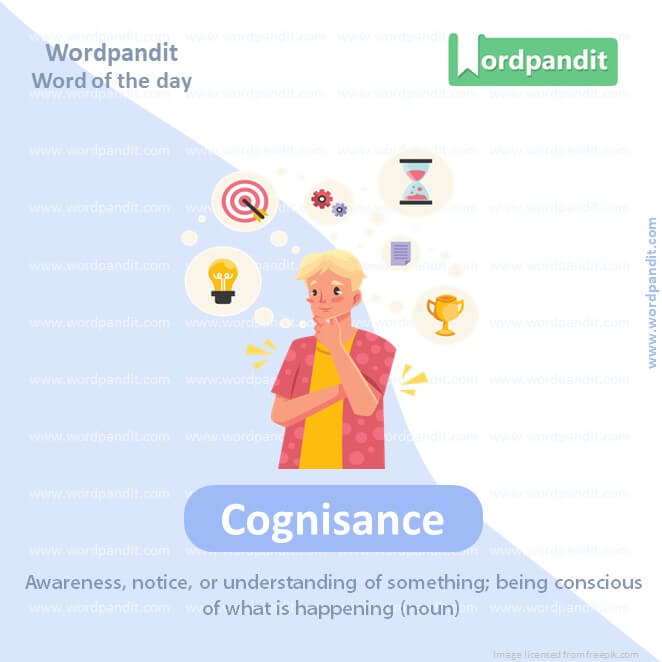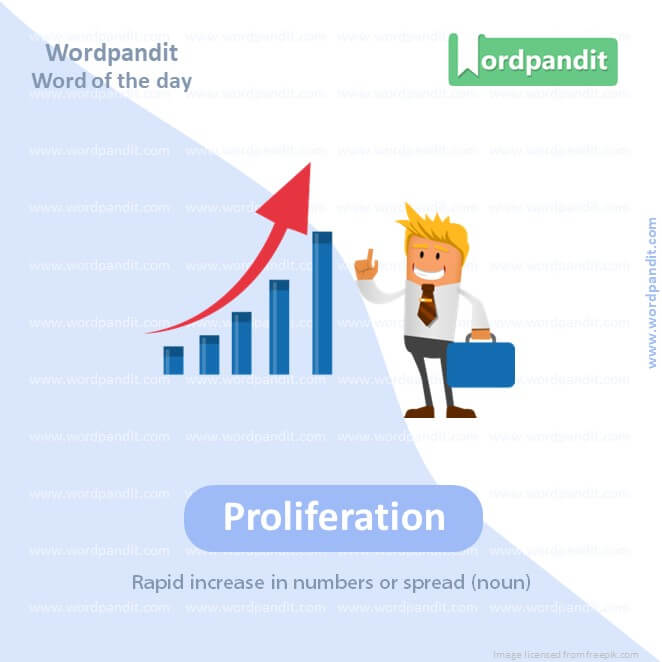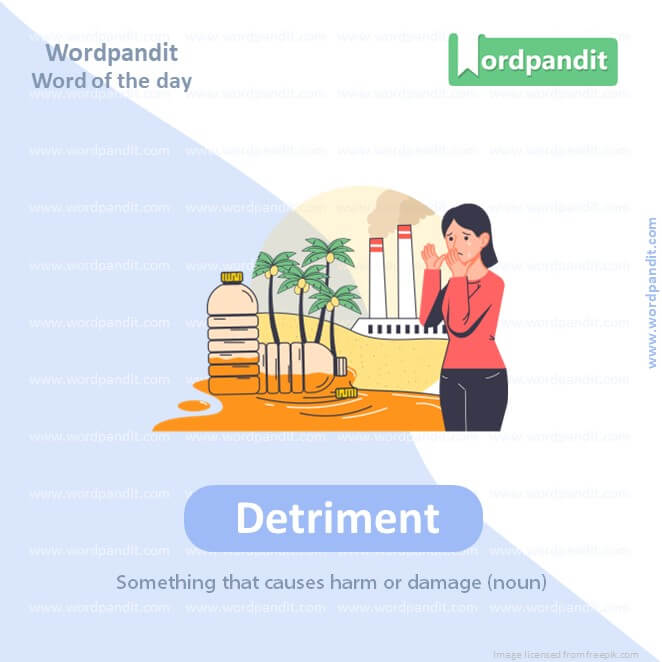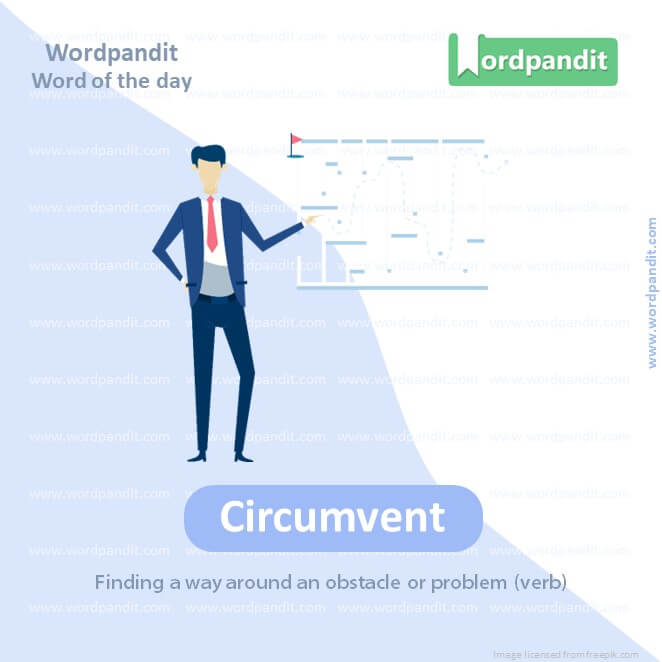Daily Vocabulary Words: List of Daily Used Words
Hi there. Welcome to this special section @ Wordpandit.
Our endeavour here is straightforward: highlighting important daily vocabulary words, you would encounter in The Hindu. This is your repository of commonly used words; essentially, we are posting a list of daily used words. Hence, this has significant practical application as it teaches you words that are commonly used in a leading publication such as The Hindu.
Visit the website daily to learn words from The Hindu.
WORD-1: TOUTING
CONTEXT: The Union has to activate itself,” Justice Hima Kohli, who is heading the Supreme Court Bench hearing the case against Patanjali Ayurved and its leaders Acharya Balkrishna and Baba Ramdev, observed on April 23 in the context of the government not having taken any action against the company for publishing advertisements touting untested, pseudoscientific cures for COVID-19, diabetes, and other conditions.
SOURCE: The Hindu
EXPLANATORY PARAGRAPH: Imagine you made a really nice drawing and you go around telling everyone how great it is and that they should look at it. That’s called “touting.” It means you’re trying to get people excited about something by telling them a lot about it.
MEANING: Actively promoting or praising something (verb).
PRONUNCIATION: TOW-ting
SYNONYMS: promoting, advertising, endorsing, hyping, pitching
USAGE EXAMPLE:
1. He was touting his new book at the conference.
2. The salesperson was touting the benefits of the new vacuum cleaner.
3. They spent the morning touting their services to potential clients.
4. Advertisements touting the event appeared all over the city.

WORD-2: COGNISANCE
CONTEXT: The Bench also took cognisance of a report that the baby formula Nestlé sells in India contains more sugar than its corresponding product in Europe, and expanded the Patanjali Ayurved matter’s remit to include all fast-moving consumer goods (FMCG) companies publishing misleading advertisements.
SOURCE: The Hindu
EXPLANATORY PARAGRAPH: Imagine knowing that you left your toy in the yard. That knowing or being aware of something is called “cognisance.” It means you’re aware of something and understand it.
MEANING: Awareness, notice, or understanding of something; being conscious of what is happening (noun).
PRONUNCIATION: KOG-nuh-sans
SYNONYMS: awareness, knowledge, recognition, consciousness, perception
USAGE EXAMPLE:
1. The manager took cognisance of the complaints and promised to address them.
2. It’s important to have full cognisance of the rules before playing the game.
3. He lacked cognisance of the cultural differences.
4. The committee operates with complete cognisance of the current laws.
WORD-3: DIMINUTIVE
CONTEXT: The apex court has sought public apologies from Patanjali Ayurved et al. for advertising misleading claims even after the Court directed them to stop; the Bench chided the defendants for publishing a diminutive advertisement.
SOURCE: The Hindu
EXPLANATORY PARAGRAPH: Imagine calling your little brother by a cute, short nickname because he’s smaller than you. That’s a bit like “diminutive.” It means small or tiny, and sometimes used to describe a nickname that shows affection.
MEANING: Extremely or unusually small (adjective).
PRONUNCIATION: dih-MIN-yuh-tiv
SYNONYMS: tiny, small, miniature, petite, wee
USAGE EXAMPLE:
1. She gave her sister a diminutive nickname that everyone loves.
2. The diminutive table fits perfectly in the corner of the room.
3. Despite its diminutive size, the device is very powerful.
4. He adopted a diminutive puppy that could almost fit in his hand.

WORD-4: PROLIFERATION
CONTEXT: Its absence is responsible for the proliferation of unfalsifiable claims regarding nourishment as well as the growing disunion between India’s concern about NCDs and the foods available to the people.
SOURCE: The Hindu
EXPLANATORY PARAGRAPH: Think about how quickly ants appear when you drop a bit of food on the ground. Soon, there are lots of them! That quick increase is called “proliferation.” It means something is increasing a lot and very quickly.
MEANING: Rapid increase in numbers or spread (noun).
PRONUNCIATION: pro-lif-uh-RAY-shun
SYNONYMS: multiplication, growth, expansion, spread, escalation
USAGE EXAMPLE:
1. There has been a proliferation of coffee shops in the city.
2. The proliferation of mobile devices has changed how we communicate.
3. Efforts are underway to control the proliferation of invasive species.
4. The last decade saw the proliferation of internet-based businesses.

WORD-5: ENCROACHMENT
CONTEXT: The courts should only review legislation, not lead it. Quick, exemplary action against violators in the cases before it, and not overenthusiastic encroachment of legislative and executive power, is what is expected of the judiciary.
SOURCE: The Hindu
EXPLANATORY PARAGRAPH: Imagine you’re building a sandcastle and someone else starts building right next to yours, taking up more and more of your space. That’s called “encroachment.” It means someone or something is gradually taking over space that belongs to someone else.
MEANING: The act of intruding or taking over someone el sels space, rights,
or privileges (Noun).
PRONUNCIATION: en-KROHCH-ment
SYNONYMS: intrusion, invasion, infringement, trespass, imposition
USAGE EXAMPLES:
1. The new building led to the encroachment of the public park.
2. Residents complained about the encroachment of commercial developments into their neighborhood.
3. Wildlife faces threats from encroachment on their natural habitats.
4. There have been increasing encroachments by drones into restricted airspace.

WORD-6: DETRIMENT
CONTEXT: Mr. Muizzu’s statement that rather than “pro-India” or “pro-China”, he intends to build a “pro-Maldives” policy must be tested against his actions while giving him time to prove that none of those actions is to the detriment of India’s security or regional peace.
SOURCE: The Hindu
EXPLANATORY PARAGRAPH: Imagine you’re building a tower with blocks, and someone keeps taking blocks away. Your tower might start to fall because it’s not as strong anymore. That’s like “detriment”—it means something is causing harm or making something worse.
MEANING: Something that causes harm or damage (noun).
PRONUNCIATION: DET-ri-ment
SYNONYMS: harm, damage, disadvantage, impairment, detriment
USAGE EXAMPLES:
1. Smoking is a detriment to your health.
2. Skipping school is to the detriment of your education.
3. The harsh weather was a detriment to the crops.
4. He argued that the new law would be a detriment to small businesses.

WORD-7: CIRCUMVENT
CONTEXT: There is criticism that these initiatives may be used to circumvent existing laws, particularly those that deal with forest conservation.
SOURCE: The Hindu
EXPLANATORY PARAGRAPH: Imagine you’re trying to get to the cookie jar, but there’s a gate blocking your way. If you find another way around the gate, like crawling under or going around, that’s called “circumventing.” It means you found a way to get around a problem or obstacle without directly going through it.
MEANING: Finding a way around an obstacle or problem (verb).
PRONUNCIATION: sur-KUM-vent
SYNONYMS: bypass, sidestep, avoid, evade, skirt
USAGE EXAMPLES:
1. She found a clever way to circumvent the school’s dress code.
2. The company tried to circumvent the regulations.
3. He circumvented the traffic jam by taking a shortcut.
4. Hackers often look for ways to circumvent security measures.
WORD-8: COMMENSURABLE
CONTEXT: Can you say how many units of ecosystem revival is equal to the units of carbon that are captured? And extend that to groundwater recharge and air pollution? Do you think all these criteria are commensurable?
SOURCE: The Hindu
EXPLANATORY PARAGRAPH: Imagine you have two pieces of string, and you want to see if they are the same length. If you can measure them both with the same ruler and they match, they are “commensurable.” It means two things can be compared or measured by the same standard.
MEANING: Comparable or measurable by the same standard (adjective).
PRONUNCIATION: kuh-MEN-shur-uh-buhl
SYNONYMS: comparable, equivalent, proportional, on par, akin
USAGE EXAMPLES:
1. The achievements of the two athletes are commensurable.
2. They discussed whether the risks and benefits were commensurable.
3. In math, we learned about commensurable and incommensurable numbers.
4. His new job offers benefits that are not commensurable with the old one.
WORD-9: FUNGIBILITY
CONTEXT: That’s the biggest challenge with this market — fungibility. Let’s say in the carbon market, there are many different kinds of projects.
SOURCE: The Hindu
EXPLANATORY PARAGRAPH: Imagine you have a dollar bill, and you trade it for another dollar bill. Both bills are worth the same and can be used in the same way. This is called “fungibility.” It means something is interchangeable with other items because they are identical in value or function.
MEANING: The quality of being interchangeable with other things of the same
type (noun).
PRONUNCIATION: fun-JIH-bil-i-tee
SYNONYMS: interchangeability, replaceability, substitutability, equivalence, uniformity
USAGE EXAMPLES:
1. Money is often used as an example of fungibility because one bill can be exchanged for another of the same value.
2. The fungibility of certain commodities makes them ideal for trading.
3. Fungibility is a key concept in understanding how stock markets work.
4. The fungibility of digital tokens is what allows them to be traded so easily.
WORD-10: REQUISITE
CONTEXT: You emerge as the unrivalled representative of the people without the people having chosen you because you are the only choice on the ballot. It is like achieving something without making the requisite effort.
SOURCE: The Hindu
EXPLANATORY PARAGRAPH: Imagine you want to make a cake, and the recipe says you need flour, sugar, and eggs. These things are “requisites” because you need them to make the cake; without them, you can’t make it.
MEANING: Required as a necessary part or condition of something (adjective).
PRONUNCIATION: REK-wuh-zit
SYNONYMS: necessary, essential, required, needed, compulsory
USAGE EXAMPLES:
1. Fresh ingredients are a requisite for the recipe.
2. Patience is a requisite in teaching young children.
3. She lacked the requisite experience for the job.
4. The form listed all the requisite documents needed for the application.
Vocabulary Words in English
In the kaleidoscopic world of language, the thread of ‘vocabulary words in English’ weaves a rich tapestry. These words, the building blocks of communication, lend themselves to the eloquence and effectiveness of our speech and writing. Despite their significance, mastering ‘vocabulary words in English’ can sometimes be daunting, but with strategic approach, the process can be greatly simplified.
Learning ‘vocabulary words in English’ goes far beyond rote memorization. It requires an integrated approach that encompasses understanding and using the words. Consuming a diverse range of English materials such as novels, news articles, movies, music, and online content can acquaint you with words in actual use, helping you perceive both their meaning and usage in different contexts.
Furthermore, incorporating memory-enhancing techniques can add impactful strides to your journey of mastering ‘vocabulary words in English’. Methods such as the Leitner System or flashcards can bolster the memory retention of these words. Meanwhile, using mnemonic devices, associating words with unique stories or images, can help in retaining the ‘vocabulary words in English’ in long-term memory.
Another key to deciphering ‘vocabulary words in English’ is by practicing them in real-world contexts. Incorporate the new words into your daily conversations, written emails, or social media posts. Not only will this reinforce the meanings and applications, but also boost your confidence in using them.
In essence, understanding ‘vocabulary words in English’ is a continual journey that calls for persistent commitment, diverse learning approach, and ample practice. As you indulge in this exploration, you will find your command over the ‘vocabulary words in English’ becoming stronger, leading to more confident and dynamic communication. Remember – in the world of language, words are your faithful companions, and the more you engage with them, the more they’ll reveal their richness to you.







